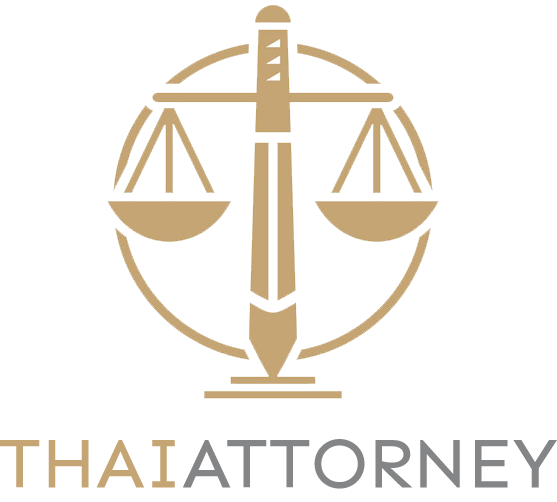Thailand is one of Southeast Asia’s most attractive destinations for real estate investment, offering diverse property choices ranging from beachfront villas and luxury condominiums to urban residences and rural estates. Whether for personal residence, retirement, or investment, buying property in Thailand can be rewarding if approached with proper due diligence and an understanding of local laws. While the Thai real estate market is open to both locals and foreigners, certain restrictions exist, especially regarding land ownership. This article provides a detailed overview of the process, legal requirements, and key considerations when buying property in Thailand.
1. Overview of Property Ownership in Thailand
Thailand allows Thai nationals to purchase land and property without restriction. However, foreigners face limitations, particularly on land ownership. Ownership rules fall into three main categories:
1.1. Foreign Ownership Restrictions
Foreigners cannot directly own land but may own:
-
Condominium units (under the 49% foreign quota)
-
Buildings separate from the land
-
Long-term leasehold rights
-
Usufruct, superficies, or habitation rights
Foreigners must understand these rules before choosing the structure of ownership.
1.2. Condominium Ownership
Condominiums are the most straightforward option for foreign buyers. Under the Thailand Condominium Act, foreigners may own up to 49% of the sellable area in a condominium project. To qualify for foreign ownership:
-
Funds must be transferred into Thailand from overseas
-
The bank must issue a Foreign Exchange Transaction (FET) form
-
The unit must be registered under the buyer’s name at the Land Office
This makes condominium purchases the most common choice for foreigners.
1.3. Land Ownership Options for Foreigners
Although foreigners cannot own land directly, they can legally control land through alternative structures such as:
-
Leasehold agreements (30 + 30 + 30 years)
-
Usufruct rights (often lifetime)
-
Superficies rights (ownership of the building only)
-
Thai registered companies with proper compliance
Each option carries specific legal risks and needs proper legal guidance.
2. Popular Types of Properties in Thailand
Thailand offers a wide range of properties suited for different lifestyles and investment goals:
2.1. Condominiums
Available in Bangkok, Pattaya, Phuket, Chiang Mai, Hua Hin, and other cities. Condos are popular due to:
-
Full foreign ownership
-
Facilities such as pools and gyms
-
High rental demand
-
Strong resale value
2.2. Villas and Houses
Foreigners cannot own the land but can own the structure. These properties are common in Phuket, Samui, and Hua Hin.
2.3. Townhouses and Shophouses
Attractive for investment but require careful ownership structuring.
2.4. Land Plots
Foreigners can only lease land, not own it. However, land remains appealing for long-term projects.
2.5. Commercial Properties
Hotels, restaurants, and resorts may be acquired through properly structured Thai companies.
3. The Property Buying Process in Thailand
Purchasing property in Thailand involves several important stages to ensure legality and financial security.
Step 1: Conducting Due Diligence
Before signing any contract or paying a deposit, a thorough due diligence check should be conducted, including:
-
Title deed verification
-
Land Office records
-
Checking for liens, mortgages, or encumbrances
-
Zoning and building regulations
-
Developer’s license and construction permits
-
Background checks on the seller or developer
This step prevents fraud, incomplete projects, and hidden legal issues.
Step 2: Reviewing the Sales and Purchase Agreement (SPA)
The SPA outlines:
-
Payment schedule
-
Transfer date
-
Responsibilities of buyer and seller
-
Penalties for breach
-
Guarantee period for defects
-
Furniture details (if included)
For off-plan projects, the contract should include:
-
Construction milestones
-
Refund policies
-
Developer obligations
Legal review is essential to ensure fair terms.
Step 3: Payment and Financial Requirements
Payments for foreign buyers typically involve:
-
Overseas bank transfers (required for condos)
-
Issuance of the FET form
-
Deposits (usually 5–20%)
-
Progress payments for off-plan projects
Buyers should keep all financial documents for future resale or tax calculations.
Step 4: Transfer of Ownership
The final step occurs at the Land Office, where officials process:
-
Registration of ownership
-
Payment of taxes and fees
-
Issuance of land or condo title deed
Both buyers and sellers must appear or send a legally appointed representative through a Power of Attorney.
4. Taxes and Fees Involved in Buying Property
Property purchases involve several taxes and fees, payable by the buyer, seller, or shared, depending on the agreement.
4.1. Transfer Fee
Typically 2% of the assessed value. Often shared between parties.
4.2. Stamp Duty
0.5% of assessed value if no specific business tax applies.
4.3. Withholding Tax
For individuals: based on progressive income rates
For companies: 1% of assessed value or selling price, whichever is higher
4.4. Specific Business Tax (SBT)
3.3% of assessed value or selling price; applies if the seller owned the property for less than five years (with exceptions).
4.5. Lease Registration Fees
1% of total lease value
0.1% stamp duty
Understanding tax obligations helps prevent unexpected costs.
5. Financing Options for Foreign Buyers
Foreign financing is limited but possible.
5.1. Foreign Bank Loans
Some international banks provide mortgages for Thai property, especially for condos.
5.2. Thai Bank Loans
Some Thai banks offer loans to foreigners with:
-
Long-term visas
-
Strong financial profiles
-
High-value deposits
Interest rates vary based on currency and tenure.
6. Key Legal Considerations
6.1. Choosing the Right Ownership Structure
Foreigners must decide between:
-
Freehold condo ownership
-
Leasehold
-
Usufruct
-
Superficies
-
Company-based ownership
Each option has different rights and risks.
6.2. Avoiding Nominee Structures
Thai law strictly prohibits using Thai “nominees” to hold land for foreigners. Violations can result in:
-
Fines
-
Property forfeiture
-
Criminal charges
Legal compliance is crucial.
6.3. Importance of Legal Assistance
Hiring a lawyer helps ensure:
-
Legitimate title deed
-
Secure agreements
-
Fair contract terms
-
Compliance with foreign ownership laws
Legal experts protect buyers from fraud and costly mistakes.
7. Benefits of Buying Property in Thailand
7.1. Strong Investment Potential
High rental yields in major cities and tourist destinations.
7.2. Affordable Luxury
Luxury properties cost much less than in Western countries.
7.3. High-Quality Lifestyle
Thailand offers:
-
Beaches
-
Healthcare
-
Culture and food
-
Low cost of living
7.4. Foreign-Friendly Real Estate Market
Clear laws for condo ownership and investment.
8. Common Challenges for Foreign Buyers
-
Misleading project advertisements
-
Developers failing to complete projects
-
Hidden fees
-
Restrictive lease terms
-
Difficulties in reselling in some markets
-
Lack of proper legal review
Understanding these challenges helps buyers avoid risks.
Conclusion
Buying property in Thailand offers a wealth of opportunities for residents, expatriates, and investors. However, the process requires a clear understanding of local laws, ownership structures, and due diligence procedures. While foreign ownership restrictions can seem complex, there are many legal pathways to securing property rights. By working with reputable developers, qualified lawyers, and professional agents, buyers can enjoy a smooth, secure, and rewarding property purchase experience.

